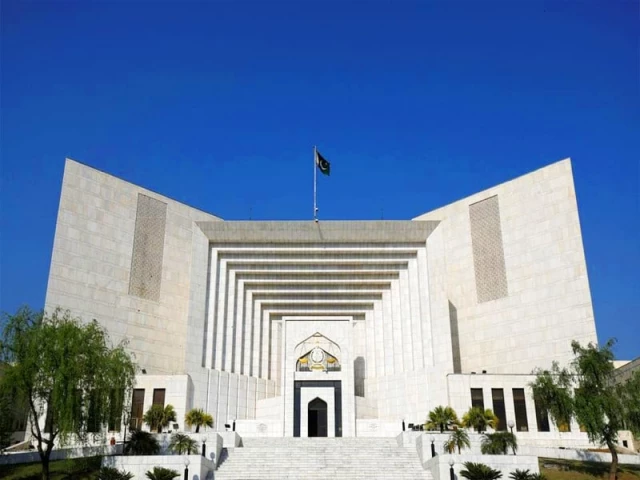ISLAMABAD:
The top court has urged high courts to exercise “greater caution and judicial restraint” while passing judgments or strictures on the conduct of trial courts judges.
“Higher courts, on a daily basis, stumble upon judgments and orders of the lower courts, and if such judgments and orders are found to be deficient or flawed either in law or in fact, are modified, remanded, or set aside,” said a 12-page order authored by Justice Muhammad Ali Mazhar.
Justice Mazhar was heading a bench which set aside a Sindh High Court (SHC) judgement wherein adverse remarks were passed against the administrative judge of an anti-terrorism court (ATC).
The verdict noted that it is predominantly the role and function of the superior courts as appellate/ revisional courts to hear appeals challenging the orders of trial courts.
“An improper motive should not be attributed even to a serious error committed by a judicial officer without confronting him and seeking his comments in order to maintain judicial comity and discipline.
“While doing so, the high court should be mindful that the scornful and demeaning remarks or observations against a member of subordinate judiciary, even if expunged, would not totally restitute the defacement of esteem and dignity,” it added.
It said criticism on a judgment or order must be judicial in nature, pointing out errors or flaws without deviating from temperance and equanimity.
“The court said that judicial strictures must be passed with the greatest wariness and circumspection because such condemnation and denunciations have never-ending or interminable impact on the credit of judicial officers.
“Rather, it always haunts him and causes severe hardship and disparagement to his name and reputation in judicial service. It not only creates serious impairment and a sense of guilt in the eyes of his subordinates, but the confidence of the public at large in the judicial system is also deteriorated.”
The order noted that there is a world of difference between a judicial stricture and a judicial outburst. The stricture, it said, figures in a considered judgment while the outburst is made during hearings of a case by a judge who is unable to control his tongue, restrain his anger, and curb his ego.
It said the illegality or irregularity in the order or judgment of a subordinate court can be rectified by the appellate court, which is in fact the premeditated underlying principle for creating the right of appeal or revisions in the superior courts under different statutes.
“Another important aspect that cannot be lost sight of is that a judicial officer against whom disparaging remarks or strictures are passed cannot come to defend his own judgment or order; therefore, the high courts should exercise great caution and judicial restraint.
It said in case of any doubt regarding conduct, the matter may be sent through a separate confidential note for the attention of the relevant chief justice, who may then deal with the judicial officer in the exercise of his own fine sense of judgment.
The judgement noted that the high courts should remember that reproaches/strictures and deprecations on judgments or orders of the subordinate judiciary have many vulnerabilities; such as, the judicial officer is condemned unheard which is violative of the principles of natural justice.
“The principle of natural justice, due process, and fair play, and particularly the right to fair trial envisaged as fundamental rights in the Constitution applies across the board, including to judicial officers of subordinate judiciary, who are members of the subordinate judiciary.
“They, too, being dispensers of justice, should be granted the right to a fair trial, rather than being condemned unheard,” it said.
It said a stricture contained in a judgment or order, whether reported in law journals or not, is a verdict in an open court which becomes public and remains so in perpetuity unless expunged by a superior court or by the court itself.
“Therefore, any disapproval expressed should be couched in temperate language, and before passing any stricture, at least comments may be called confidentially so that the judicial officer may not be condemned unheard and if the comments/report is not found satisfactory, then the matter may be referred confidentially to the chief justice for consideration on the administrative side,” it said

